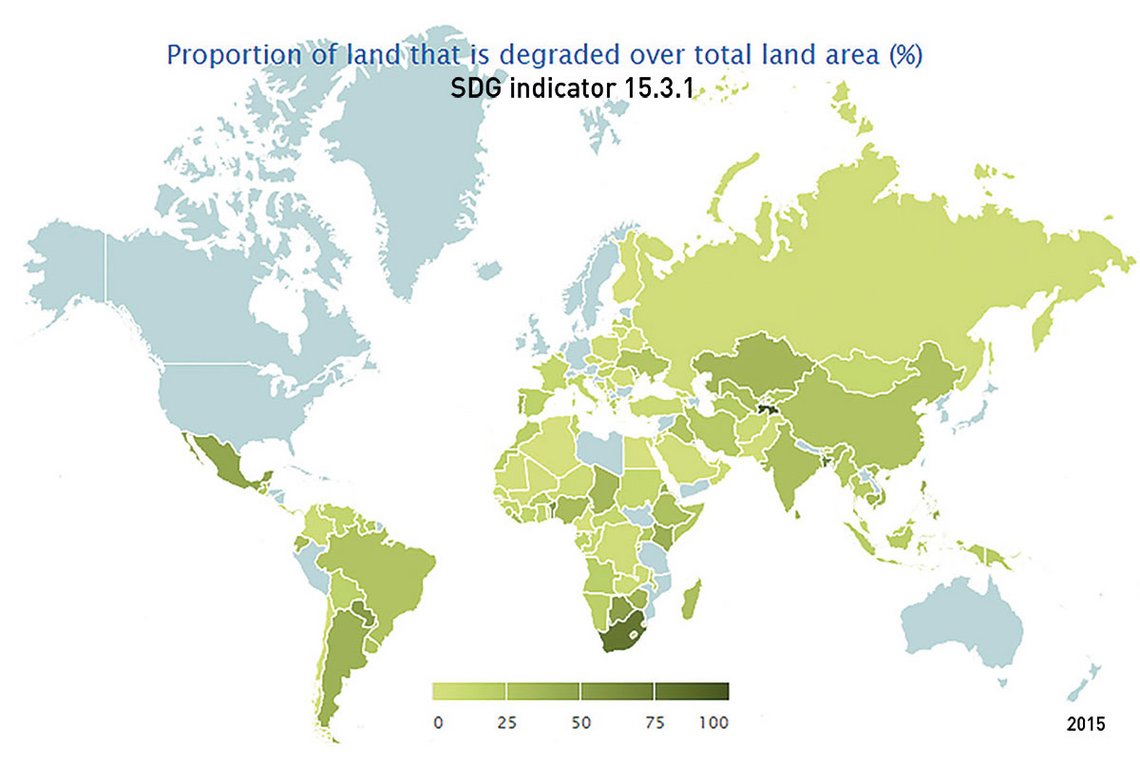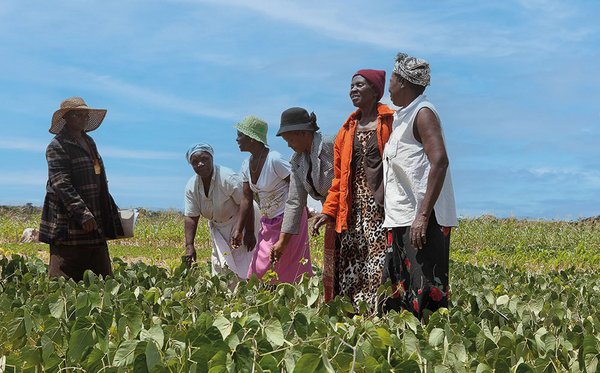 Download this article in magazine layout
Download this article in magazine layout
- Share this article
- Subscribe to our newsletter
The SDG Land Tracker – easy access to land-related indicators
Land is a key economic resource inextricably linked to access to use of and control over other economic and productive resources and is thus critical to achieving the SDGs. Despite various efforts and some positive developments, land rights have not yet been prioritised in many countries. As such, continuing to document the process of land-related SDGs proves to be particularly important to coordinate stakeholder efforts and prioritise actions.
The SDG Land Tracker provides easy access to official data and information on all 13 land-specific SDG indicators:
- 1.4.2 on perceptions of tenure security;
- 2.3.1, 2.3.2 and 2.4.1, relating to food security;
- 5.a.1 and 5.a.2 on gender and land rights;
- 11.1.1., 11.3.1 and 11.7.1 on housing and urban tenure, and
- 15.1.1, 15.1.2, 15.2.1 and 15.3.1, relating to forests, conservation and degradation (also see screenshot).

The very cross-cutting nature of land data and the fact that it is scattered across different governmental and non-governmental organisations and institutions make it hard to monitor progress related to the achievement of the SDGs. To address this problem, the Land Portal has launched a new SDG Land Tracker in February 2022.
The SDG Land Tracker concisely explains each indicator, outlines data collection and methodology, clarifies report standing and terminology, and tracks their progress. More specifically, it seeks to document and monitor land data in a collaborative way, opening a space for custodian agencies to complement and scrutinise the information provided by the Land Portal. As a cross-cutting issue, this collaboration is encouraged across organisational silos and sectors. The new tracker provides a better overview, and new maps and data sets were added. Also, each indicator was reviewed by at least one custodian agency. The major challenge in revamping the SDG Land Tracker lay with the complexity of land-related SDG indicators and the multiple agencies involved. Moreover, for some indicators that rely on multiple data sets, no data was available, such as for some urban indicators (e.g. 11.3.1 and 11.7.1) or for land under sustainable use (e.g. 2.4.1).
It has been shown that discussions increasingly centre around the improvement of national data management, harmonising data sets that may vary considerably across countries or the disaggregation of data at regional level. While the availability of forest-related data has further improved, more efforts are needed to capture SDG land data in urban settings. However, the SDG Land Tracker shows that all land-related indicators have progressed in defining their terminology, outlining the methodology, and/or in data collection. In this light, the newly re-launched SDG Land Tracker provides an accessible starting point and space for an informed debate and critical analysis.
Laura Meggiolaro is a specialist in information and knowledge management for development. Over the last 15 years, she has been responsible for kicking off, implementing and leading a range of data, information and knowledge management initiatives focused on land rights.
Anne Hennings has worked on land and resource related issues for over ten years and holds a PhD in Peace and Conflict Studies.
Contact: laura.meggiolaro(at)landportal.info
The Land Portal Foundation was established to create, curate and disseminate land governance information by fostering an inclusive and accessible data ecosystem. Over the last decade, the portal has evolved from a simple information gateway to become a knowledge broker, a resource base, a vibrant online community of users and a trusted voice within global land governance.





Add a comment
Be the First to Comment